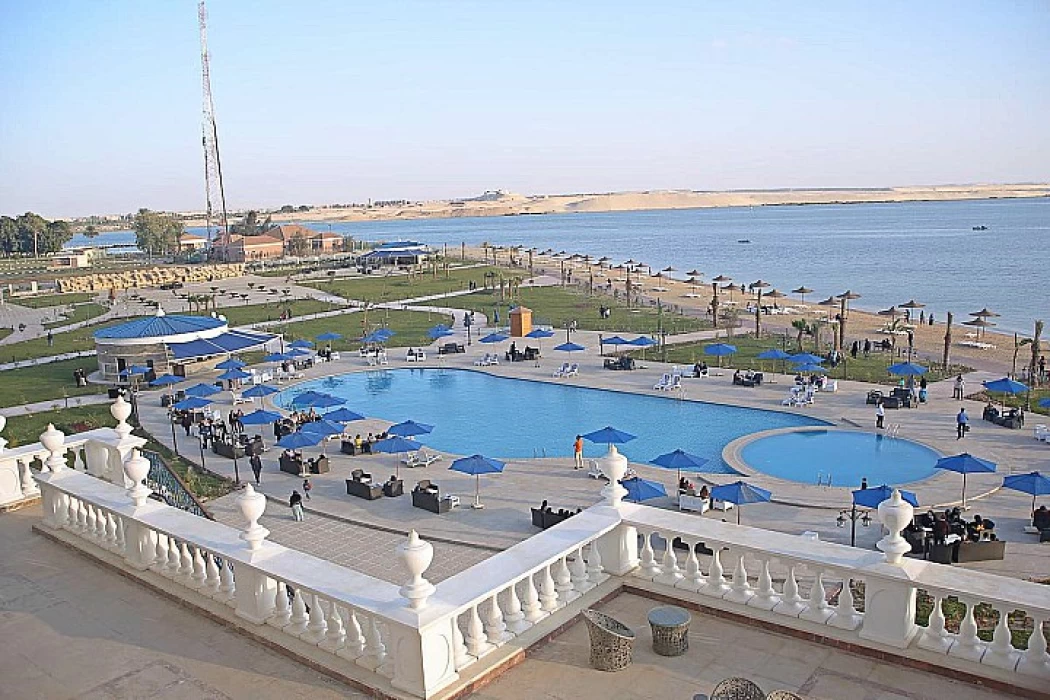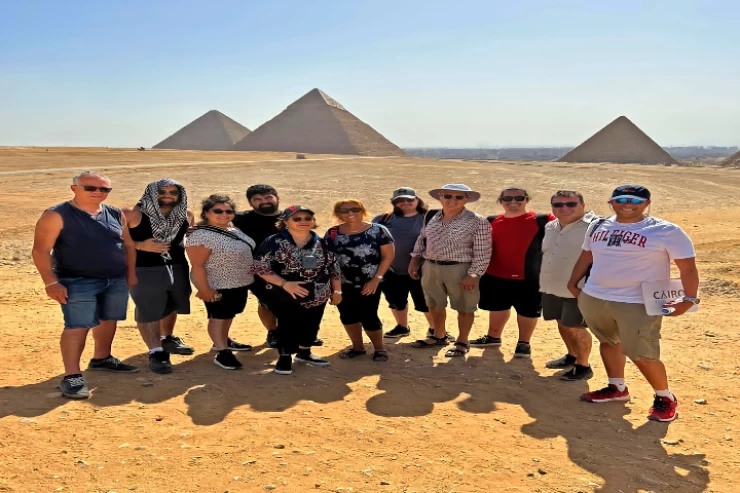
Al-Ismailia Governorate Egypt
Al-Ismailia Governorate Egypt
The new town of Ismailia is located 72 km from the canal, south of the median road and as far as Gabal Maryam, where the new town lies around 500 meters from the new canal bank, from the 6 km length of 1.5 km north of Port Said and 9.5 km south of Suez and one kilometer deep into the Sinai Peninsula.
Situated roughly 110 kilometers northeast of Cairo International Airport in Egypt, this city of beauty and enchantment spans 5,066 square kilometers and enjoys moderate year-round weather. It is considered an Afro-Asian city because it is situated close to the midpoint of the Suez Canal, which separates it into two parts: Africa and Asia.
Ismailia's historical roots may be traced to the pre-dynastic era, when it was one of the greatest provinces in Lower Egypt and ranked seventh at the time. Its capital, "Per-Atum," was situated near Tel El-Maskhuta, which is now the city of Abu Suweir.
Numerous prophets have passed through its territory, such as Prophet Ibrahim, Prophet Yusuf and his brothers, and their father Prophet Yaqub. They have also witnessed the Holy Family's voyage and the escape of Prophet Musa, as well as the arrival of Amr ibn al-Aas in Egypt.
Regarding the current origins of Ismailia, it was formally founded on April 27, 1862, during the reign of Said Pasha. The city was named Crocodile City because of its location on the shore of Lake Timsah. The French Canal Company christened the city Ismailia on March 4, 1863, in honor of Khedive Ismail, the then-ruler of Egypt, in a lavish ceremony. Law No. 24 for the year 1960, which established the Ismailia Governorate, was released in January of that year.
The buildings in Ismailia were built with a French lifestyle hue, which was popularized by Khedive Ismail and applied to most Egyptian buildings throughout his rule. The city was inspired by the French Riviera and aimed to replicate its picturesque aspect on the western bank of Lake Timsah. The Canal cities' neighborhoods had an Ismailian allure that captured the attention of people worldwide because to their cunning.
The people who dug the Suez Canal first settled in the city of Ismailia in the middle of the 19th century, and the city has always been strongly associated with the events surrounding the canal. The Suez Canal events are the source of its delight and celebrations. The city is separated into two neighborhoods: the French area, which was home to French, English, Greek, and other international nations, and the Arab neighborhood, which was occupied by the canal heroes. It is currently owned by the Suez Canal Company, which uses it to house its engineers and employees.
The city of Ismailia recalls Rosetta Island, surrounded by water on all sides, with its pristine aspect on the Suez Canal shore, the little lakes and Lake Timsah, and the profusion of trees and gardens, particularly the mango and lemon trees. The fact that Ismailia is a great place for both land and sea fishing excursions is one of its other endearing qualities. The sea's fishing grounds encompass cities including Abu Sultan, Fanara, and Fayed. Ismailia is also well-known for its numerous tourist attractions, which set it apart from other places and draw visitors who fall in love with the place and return often.
The foundation stone was laid for the founding of the Ismailia Governorate, which was previously called the city of Timsah, because it was located north of Lake Timsah on April 27, 1862 AD during the era of Said Pasha, and in the following year.
it was called Ismailia in relation to the ruler of Egypt during that period of Khedive Ismail, while the official launch of the Ismailia Governorate was during a ceremony attended by a number of The heads of the world in 1869 AD to open the Suez Canal.
This city starts from the village of Al-Mahsima and extends to the village of Dhahria, which is one of the most famous cities in the Republic of Egypt with mango and strawberry cultivation, inhabited by about 48 thousand people.
It is called the East because of its occurrence east of the Suez Canal, and it also includes part of its area part of the Sinai Peninsula, and this city was built on the ruins of a cemetery dating back to the Roman era, several names such as Tharo and Sila were called on this region, and it contains several archaeological landmarks such as the fortress Which was built by the Mamluk Sultan Qansuh Al-Ghuri.
And among the ancient places that exist in this city is the Museum of Ismaili Archeology
The Museum of Archeology of the Governorate dates back to its construction in 1913 AD by a group of engineers who work in the International Maritime Navigation Company, and it is distinguished by the architectural character that was built upon it taking the form of a temple, and the museum includes many rare artifacts dating back to the Pharaonic era, and it had opened The doors of the museum to allow visitors to visit it for the first time in 1934.















